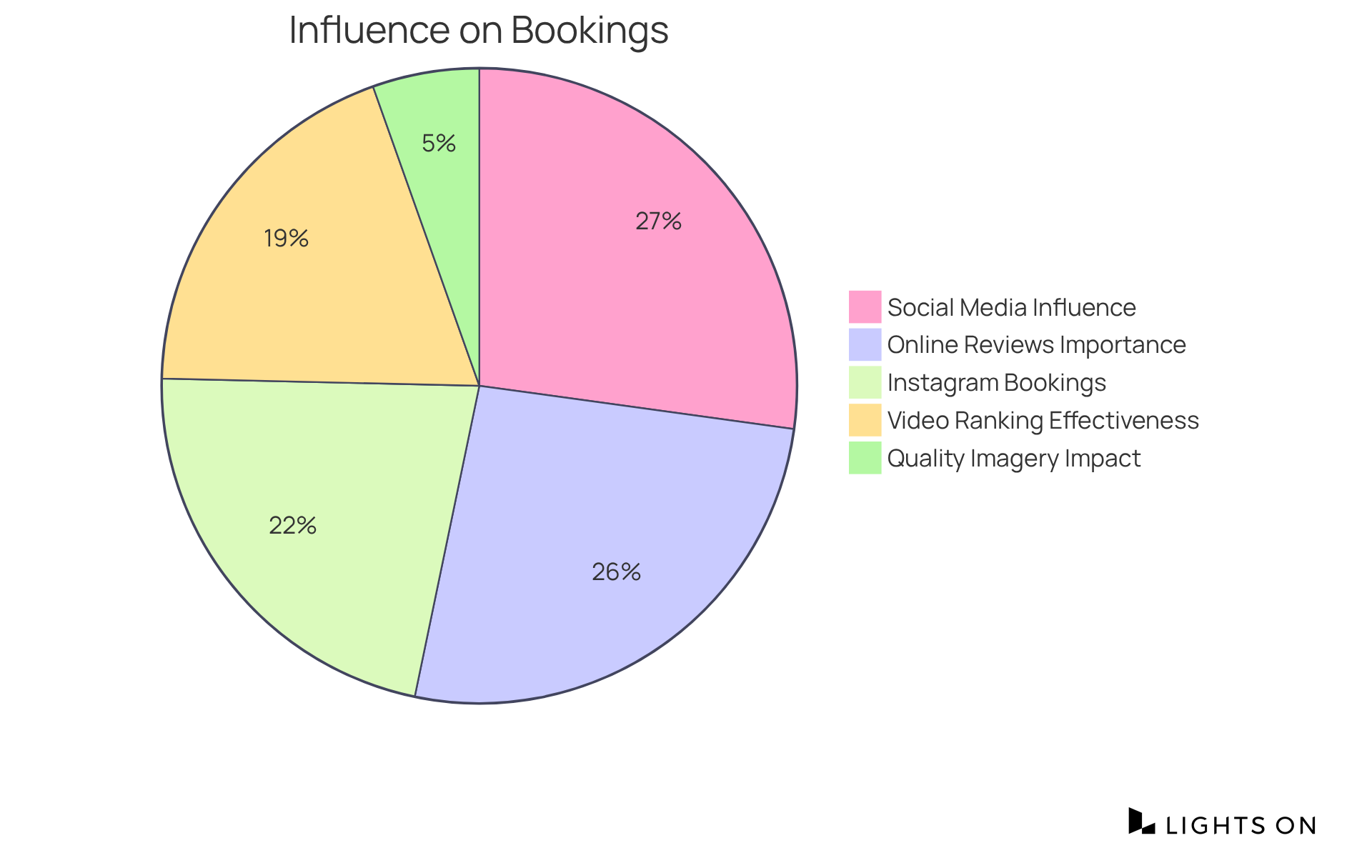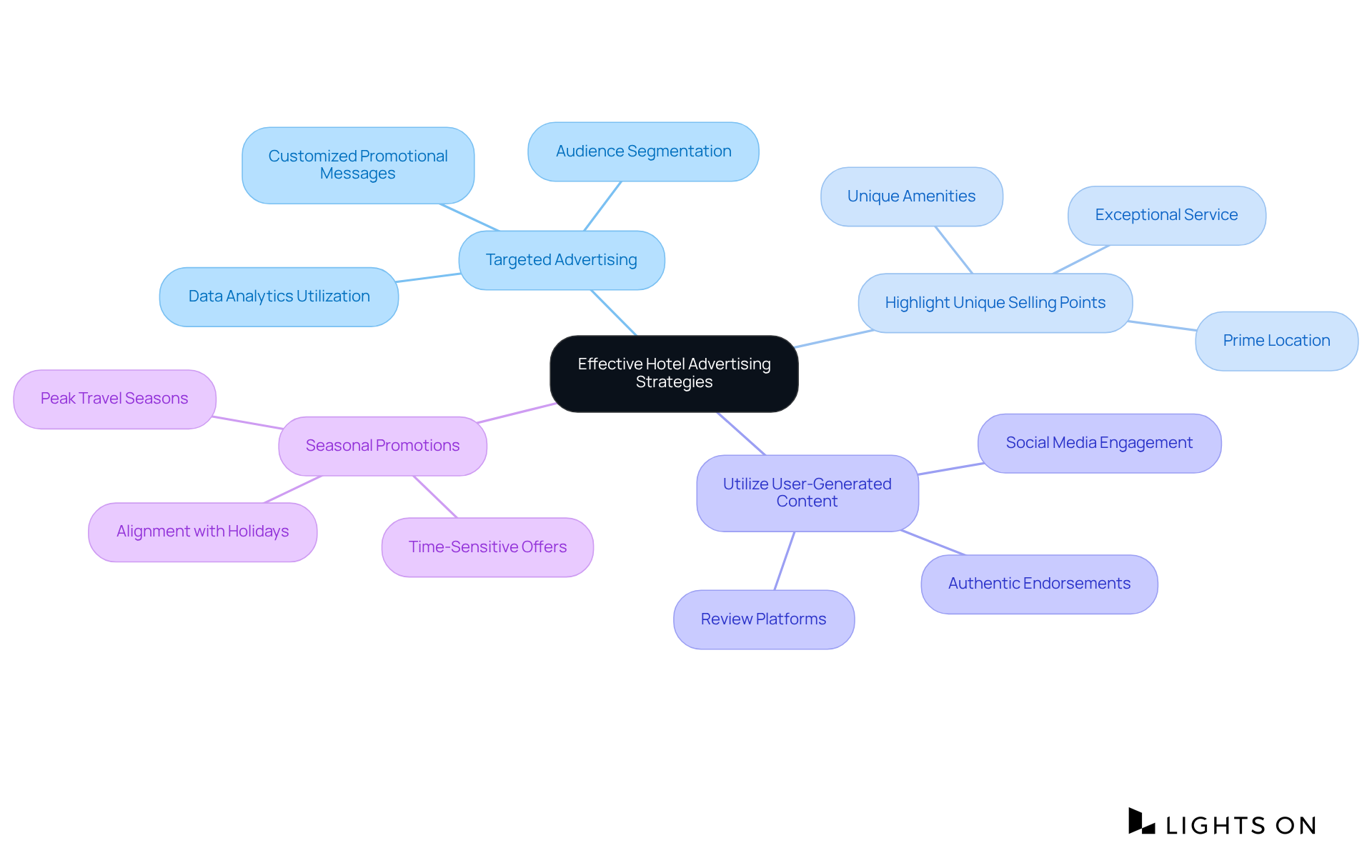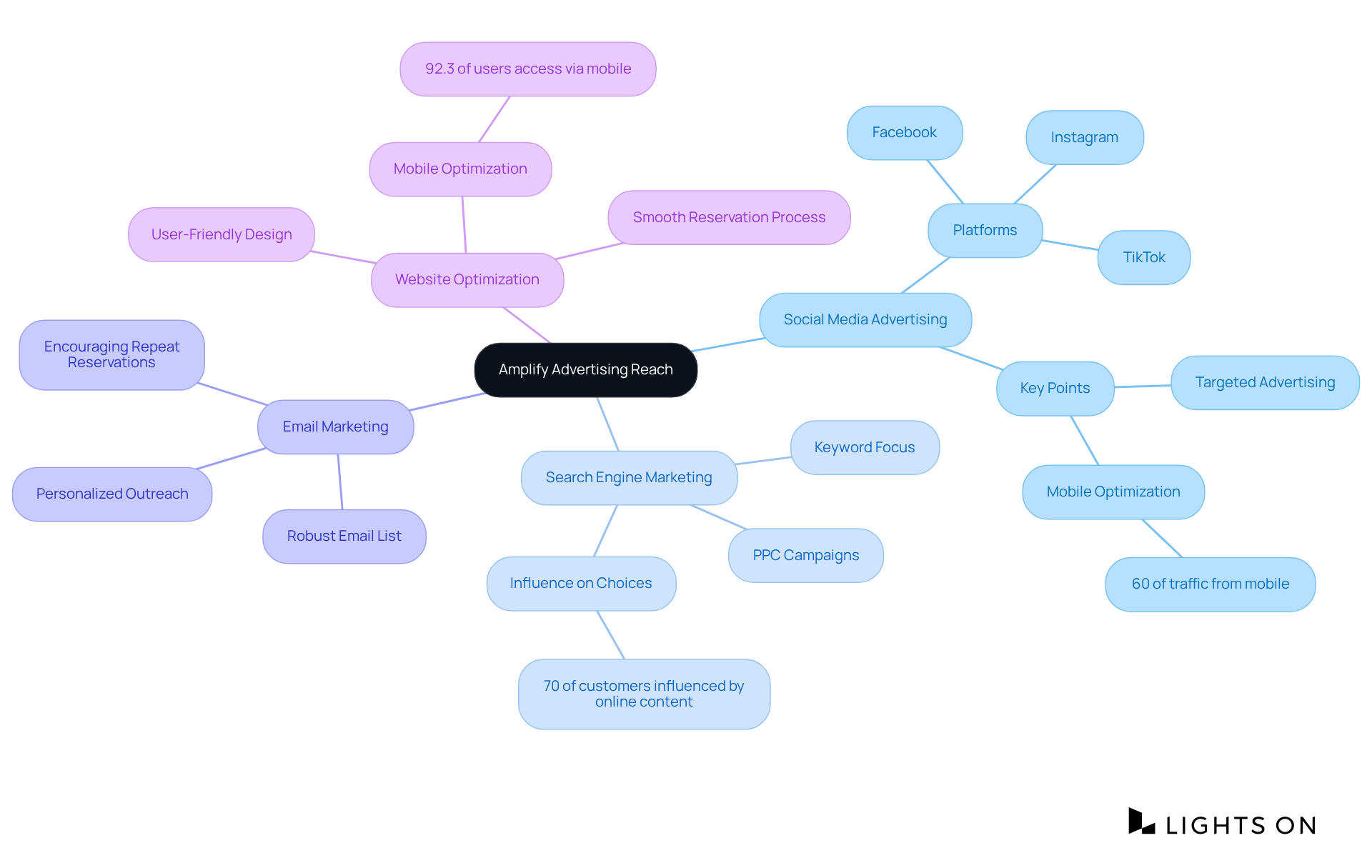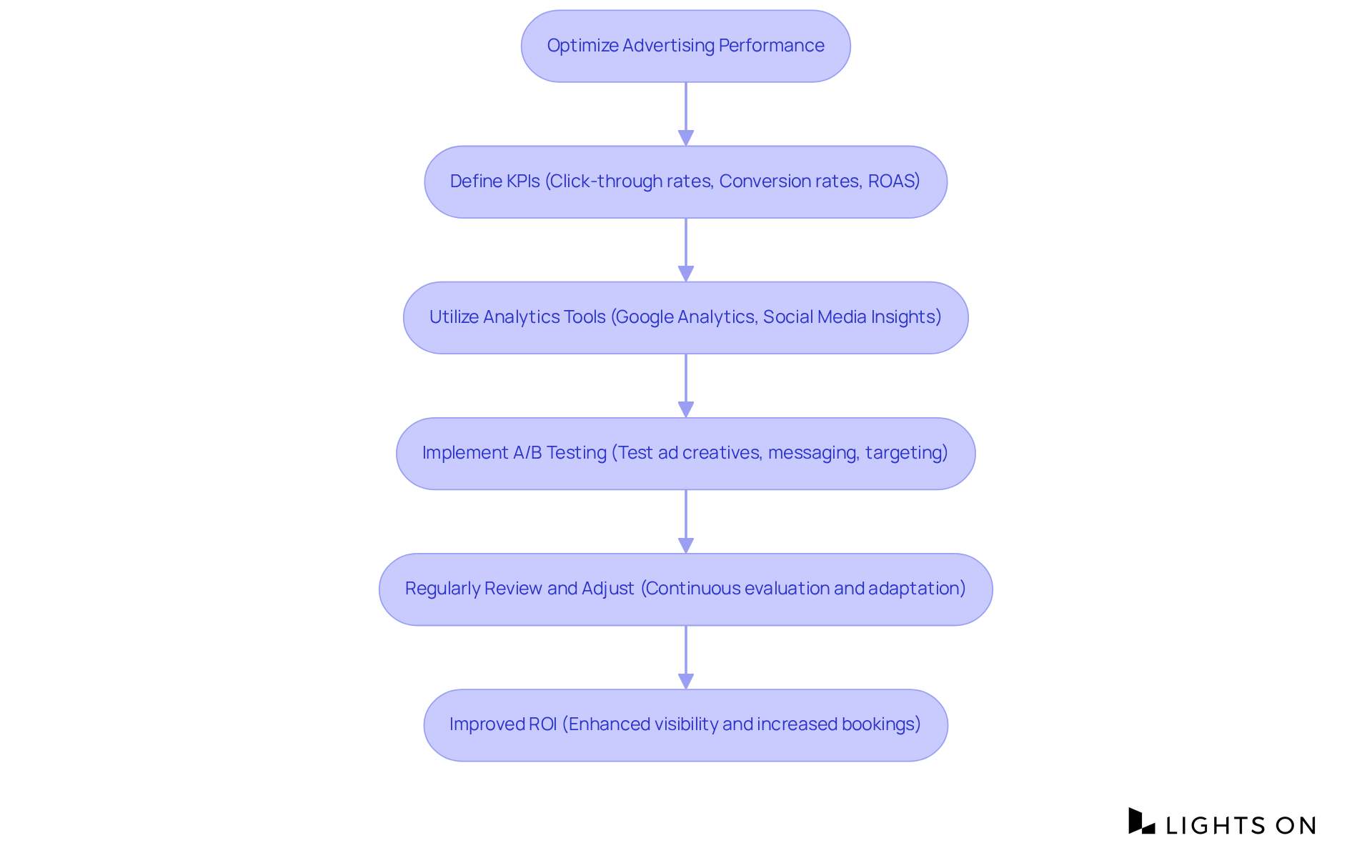Effective advertisement of hotels can be achieved through four proven strategies:
These strategies not only enhance engagement but also significantly boost conversion rates. By leveraging data analytics, showcasing distinctive features, and creating a sense of urgency, hotels can drive increased direct bookings. Ultimately, these approaches lead to improved financial performance, establishing a strong foundation for success in the competitive hospitality market.
In the competitive landscape of hospitality, effective hotel advertising is not merely an option; it is an absolute necessity. With travelers sifting through dozens of websites before making a booking, the stakes for hotels to stand out have never been higher. This article delves into proven strategies that can elevate hotel marketing efforts, from leveraging social media to optimizing advertising performance.
How can hotels navigate this complex terrain to not only attract guests but also ensure a solid return on their marketing investments?
The advertisement of hotels necessitates the strategic deployment of various media platforms to illuminate a property's unique features, services, and experiences for potential visitors. This multifaceted approach encompasses the advertisement of hotels, digital advertisements, social media campaigns, and traditional marketing techniques, all meticulously crafted to capture the attention of travelers in an increasingly competitive marketplace. Effective accommodation promotion articulates the establishment's value proposition with clarity, simplifying the process for consumers to discern what sets it apart from competitors. In an environment where travelers typically navigate an average of 38 websites prior to booking, a well-designed advertisement of hotels can profoundly influence a guest's decision-making journey.
Statistics reveal that:
As the hospitality sector continues to evolve, leveraging innovative marketing strategies—such as influencer partnerships—becomes essential for boosting direct reservations and enhancing overall financial performance.
Additionally, the management of online reviews is paramount, with 72% of travelers deeming them crucial in their booking decisions. By addressing these facets of accommodation promotion, hotel and restaurant owners can effectively navigate the challenges of the industry and drive successful outcomes.

To effectively advertise hotels, consider implementing the following proven strategies:

To amplify your hotel's advertising reach, consider leveraging the following digital marketing tools:
By applying these strategies, establishments can effectively improve their marketing reach and increase more direct reservations.

To maximize the effectiveness of your hotel advertising and achieve a strong return on investment (ROI), it is essential to implement measurement and optimization practices that resonate with your goals:
By focusing on these practices, you can enhance your advertising effectiveness, ultimately leading to improved visibility and increased bookings for your hotel.

Effective hotel advertising transcends mere property promotion; it strategically communicates unique offerings to capture the attention of potential guests. The significance of well-executed advertising is paramount, particularly as travelers face a myriad of options before finalizing their booking decisions. By leveraging a blend of digital and traditional marketing techniques, hotels can markedly enhance their visibility and appeal, ultimately influencing consumer choices within a competitive landscape.
Key strategies include:
Furthermore, measuring and optimizing advertising performance through key performance indicators ensures that marketing efforts yield a robust return on investment.
As the hospitality industry evolves, embracing these proven strategies becomes crucial for success. Hotels prioritizing effective advertising not only boost their occupancy rates but also cultivate lasting relationships with guests. The call to action is unequivocal: invest in innovative marketing techniques and continuously refine your approach to stay ahead in the dynamic realm of hotel advertising. By doing so, hotels can guarantee they not only meet but exceed the expectations of modern travelers.
What is hotel advertising?
Hotel advertising involves the strategic use of various media platforms to highlight a property's unique features, services, and experiences to attract potential visitors.
Why is hotel advertising important?
It is crucial for capturing the attention of travelers in a competitive marketplace, helping them understand what sets a hotel apart from its competitors and influencing their booking decisions.
How do travelers typically research hotels before booking?
Travelers often navigate an average of 38 websites before making a booking decision.
What role does social media play in hotel advertising?
Social media significantly influences destination choices, with 75% of travelers acknowledging its impact, and 61% having booked accommodations after seeing them on Instagram.
How can high-quality imagery and content affect hotel bookings?
Hotels that invest in high-quality imagery and compelling content can experience a 15% increase in conversion rates.
What is the impact of videos on hotel website visibility?
Websites featuring videos are 53 times more likely to rank on the first page of Google search results, which can directly enhance occupancy rates and revenue.
What innovative marketing strategies can hotels use to boost reservations?
Leveraging strategies such as influencer partnerships is essential for increasing direct reservations and improving financial performance.
How important are online reviews in the hotel booking process?
Online reviews are deemed crucial by 72% of travelers in their booking decisions, making their management vital for hotels.
Transform your group booking strategies with Lights On and watch your occupancy soar.